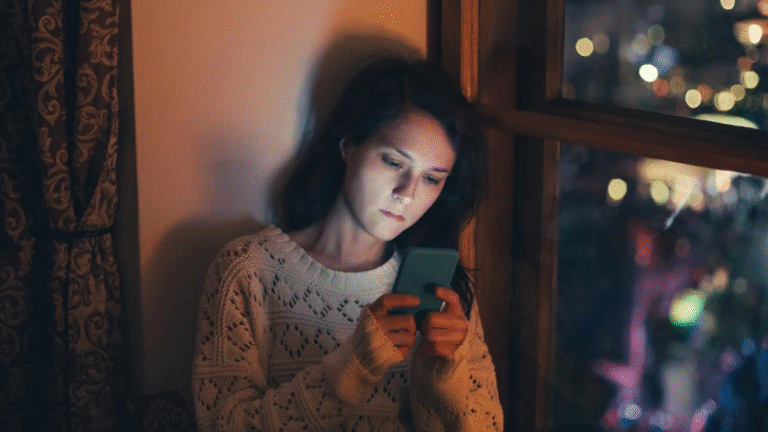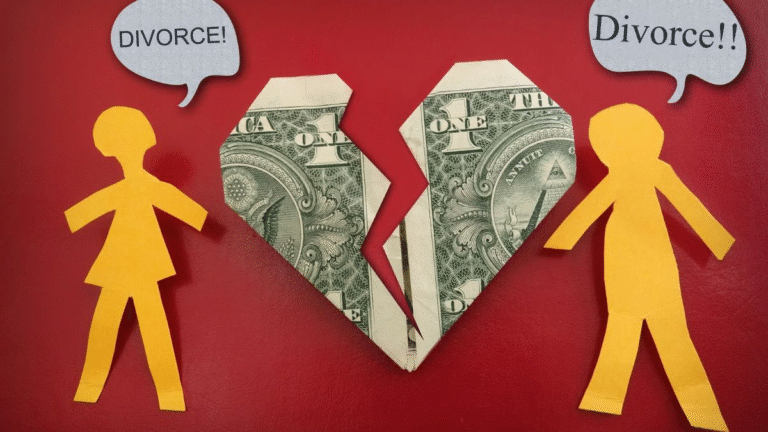Why Breakups Hurt More at Night? The Psychology
As the sun sets and the world falls silent, a familiar ache in your chest intensifies. During the day, you managed to suppress it, distracted by work, errands, and the constant noise of life. But now, in the stillness of the night, the silence is filled with memories, regrets, and a profound sense of loss. Why does the pain of a breakup feel so much more intense when you’re alone in the dark?
You’re not imagining it, and it’s not a sign of weakness. The transition from being a rational and functional person during the day to an emotional and overthinking wreck at night is a common and scientifically validated phenomenon. It’s not just a figment of your imagination; it’s rooted in your biology and psychology.
This article delves into the scientific reasons behind why breakups are more painful at night, examines the common pitfalls we encounter, and offers proven, psychology-backed strategies to help you reclaim your nights and find peace.
The Science of Nighttime Sadness
The feeling of intensified heartbreak at night is a perfect storm of biological and psychological factors. As the sun sets, our internal world undergoes a transformation, making us susceptible to emotional pain.
The Psychological Explanation: The Void of Silence
During the day, our brains are bombarded with stimuli. Work deadlines, social interactions, and daily chores act as cognitive distractions, keeping our minds occupied. At night, these distractions vanish.
According to a study published in the Journal of Experimental Psychology, our minds are wired to seek out stimulation. When external distractions disappear, your brain turns inward and latches onto the most pressing emotional issue available: your breakup. This void of silence becomes a breeding ground for rumination and “what if” scenarios.
The Biological Explanation: A Fatigued Brain & Hormonal Shifts
At the end of a long day, your brain is exhausted. Specifically, the prefrontal cortex, the part of your brain responsible for rational thinking, logic, and impulse control, experiences reduced activity levels.
Consequently, the amygdala, your brain’s emotional center, gains more influence. Consequently, emotions such as sadness, fear, and regret appear significantly larger and more overwhelming because the rational part of your brain is too fatigued to regulate them effectively.
Furthermore, cortisol, the body’s primary stress hormone, plays a significant role. While cortisol levels naturally decrease at night to prepare for sleep, prolonged emotional distress from a breakup can disrupt this natural rhythm.
Consequently, this can lead to nighttime spikes in cortisol levels, which trigger anxiety and prevent sleep, creating a vicious cycle of stress and exhaustion.
The Vicious Cycle: Common Nighttime Traps
Let’s discuss Alex. After a recent breakup, Alex’s days were manageable. However, as soon as they hit the pillow, their phone would come out. They’d spend hours scrolling through old photos, re-reading text conversations, and checking their ex’s social media.
Each post, each tagged photo, became a new clue to decipher, sending them spiraling deeper into a cycle of pain and “what ifs.” By 3 AM, they were exhausted, anxious, and no closer to finding peace.
Alex’s story is a common one. Here are some of the most common mistakes people make after a breakup at night:
- Social Media Stalking: Obsessively checking your ex’s profiles is like picking at a wound. You’re often filling in the gaps with worst-case scenarios that are rarely true.
- Ruminating on the Past: Replaying arguments or happy memories over and over again keeps you stuck. This prevents you from processing the emotions and moving forward.
- Isolating Yourself: Loneliness is a major trigger. Pushing away friends and family to be alone with your thoughts only amplifies the sadness.
- Neglecting a Sleep Routine: Staying up late watching sad movies or scrolling endlessly disrupts your sleep cycle, which is scientifically proven to worsen your mood and emotional regulation the next day.
Proven Strategies to Reclaim Your Nights
Break the cycle of late-night heartbreak by being proactive and intentional with your evenings.
1: Create a ‘Wind-Down’ Routine
About an hour before you intend to sleep, initiate a calming, screen-free ritual. This action serves as a signal to your brain, indicating the need to transition into a restful state.
- Here’s a practical example: Put your phone on silent and move it to another room. Take a warm bath, read a chapter of a book (fiction is great for escaping reality), or listen to a calming playlist or podcast.
2: Perform a ‘Thought Dump‘
Overthinking occurs when your thoughts spiral uncontrollably in your mind, leaving you feeling trapped. Before going to bed, take a moment to jot down everything you’re experiencing—the anger, the sadness, the questions that keep you up at night.
- For instance, you could use prompts like, “Tonight, I’m feeling…”, “What I wish I could say is…”, or simply free-write for 15 minutes. This helps you get your thoughts out of your head and onto paper, making them feel more manageable.
3: Leverage Mindfulness & Grounding Techniques
When you find yourself spiraling, mindfulness can help you bring yourself back to the present moment.
- Reference Attachment Theory: If you have an anxious attachment style, the nighttime silence can feel like abandonment. A grounding exercise can soothe this trigger.
- Practical Example: Try the 5-4-3-2-1 method. Name five things you can see, four things you can feel, three things you can hear, two things you can smell, and one thing you can taste. This pulls your brain out of the emotional spiral and into the present.
Tools & Apps That Can Help
- Calm : Famous for its “Sleep Stories,” guided meditations, and calming soundscapes designed to quiet an anxious mind.
- Talkspace : If overthinking persists, talking to a licensed therapist can provide you with professional coping strategies. Online therapy makes it accessible from home.
- Daylio Journal : A mood-tracking and journaling app that helps you identify patterns in your emotions and activities, empowering you to make positive changes.
Expert Insights & Reliable Sources
Science consistently demonstrates the profound connection between our emotional well-being and our sleep patterns.
- According to the Sleep Foundation, ‘Emotional stress is a common cause of insomnia… a lack of sleep can, in turn, amplify the effects of emotions, leading to a negative cycle of stress and sleep loss.’
- An article in Psychology Today explains that rumination at night “keeps the emotional wound fresh and prevents psychological healing from occurring.”
- As clinical psychologist Dr. Guy Winch explains, heartbreak triggers the same reward systems in the brain as addiction. The solitude and quiet of the night can feel like withdrawal, intensifying cravings and amplifying the sense of loss.
Conclusion
The pain you experience at night after a breakup is genuine, valid, and scientifically proven. Your brain’s fatigue, the sudden silence, and hormonal changes create an ideal setting for sadness to flourish. However, you are not powerless.
By comprehending the psychological factors involved and implementing proactive strategies such as a wind-down routine, journaling, and mindfulness, you can alleviate your mind and heart.
The night may seem endless, but it won’t last forever. Every sunrise brings a fresh chance to heal and create a brighter day for yourself.
5. FAQ Section
Yes, it’s completely normal. Dreams are one of the primary ways our subconscious brain processes significant emotional events and sorts through memories. It’s a natural part of the healing process, not a sign you should get back together.
If you wake up and can’t fall back asleep within 15-20 minutes, get out of bed. Go to another dimly lit room and do something calming, like reading or listening to soft music, until you feel sleepy. This helps break the mental association between your bed and anxious overthinking.
Both Calm (https://www.calm.com) and Headspace (https://www.headspace.com) are excellent choices. Calm’s “Sleep Stories” are particularly effective for distracting a racing mind, while Headspace offers structured courses on managing sadness and anxiety.
There is no universal timeline for healing from heartbreak. It’s a personal journey that depends on many factors. However, by consistently using healthy coping strategies, you will notice the intensity and frequency of these difficult nights gradually decrease over time.
This is a classic combination of loneliness and reduced impulse control. Your prefrontal cortex (the logical part of your brain) is tired, making it much harder to resist the emotional impulses coming from your amygdala. This is why putting your phone away an hour before bed is one of the most powerful strategies.






